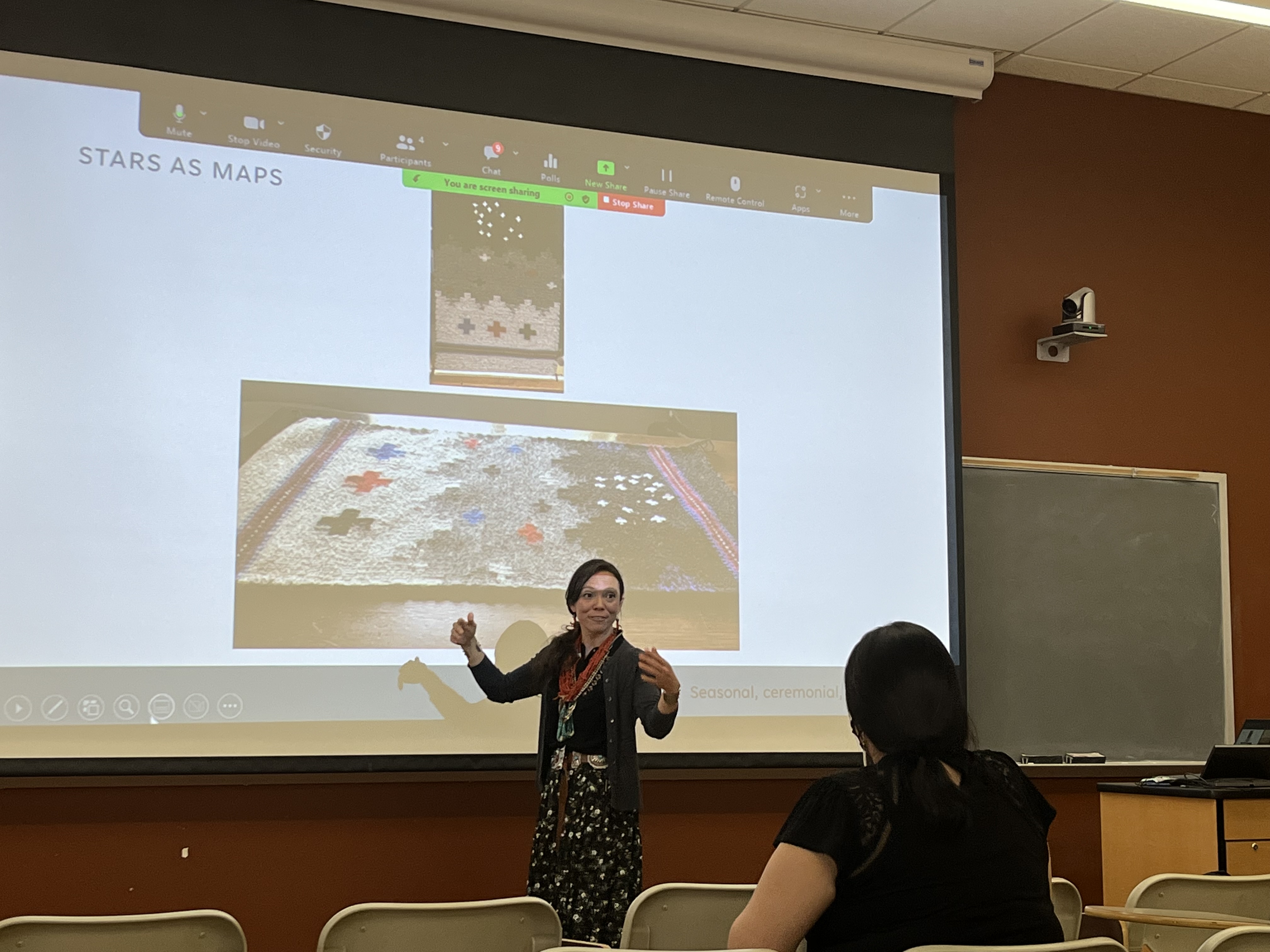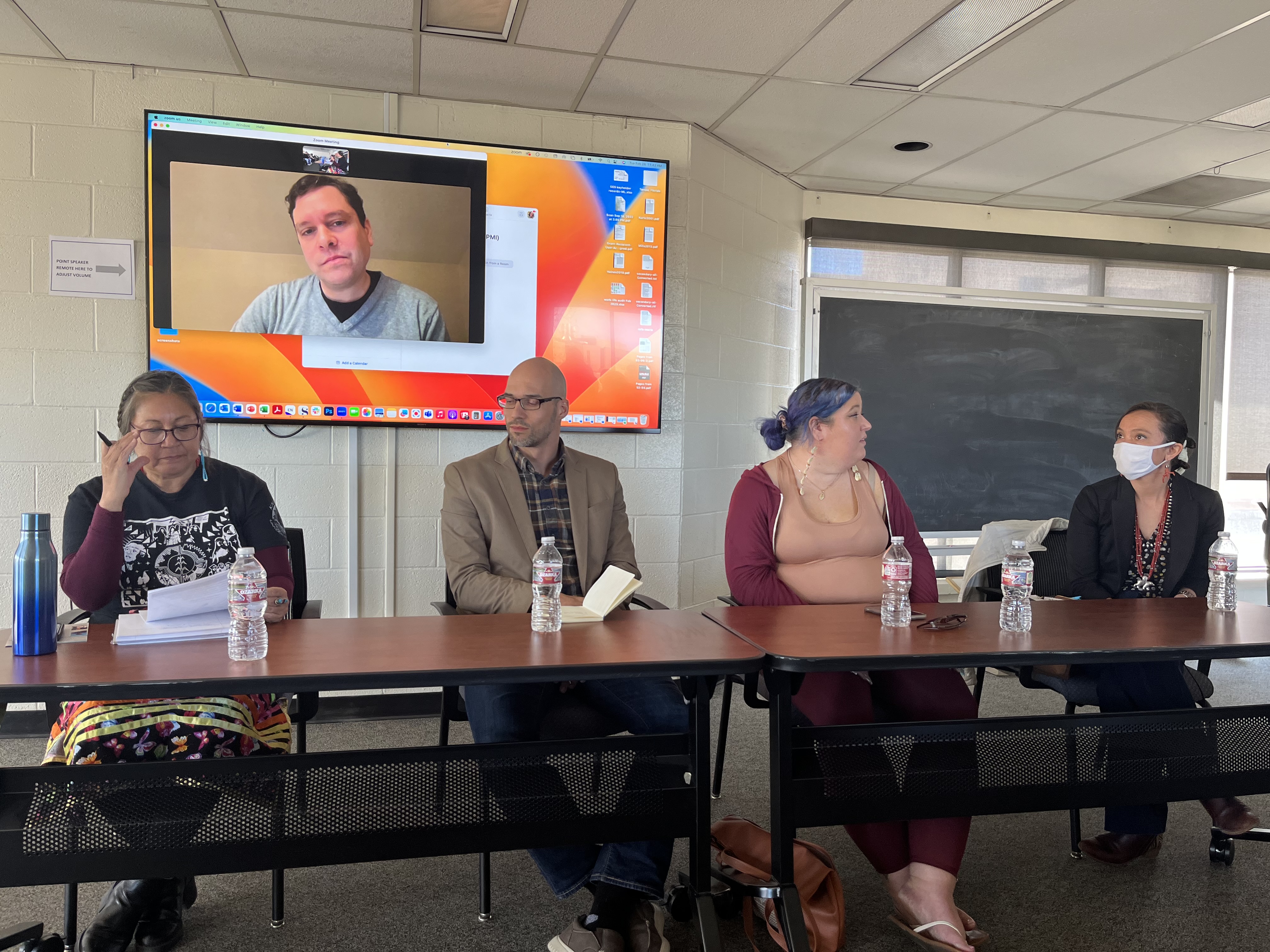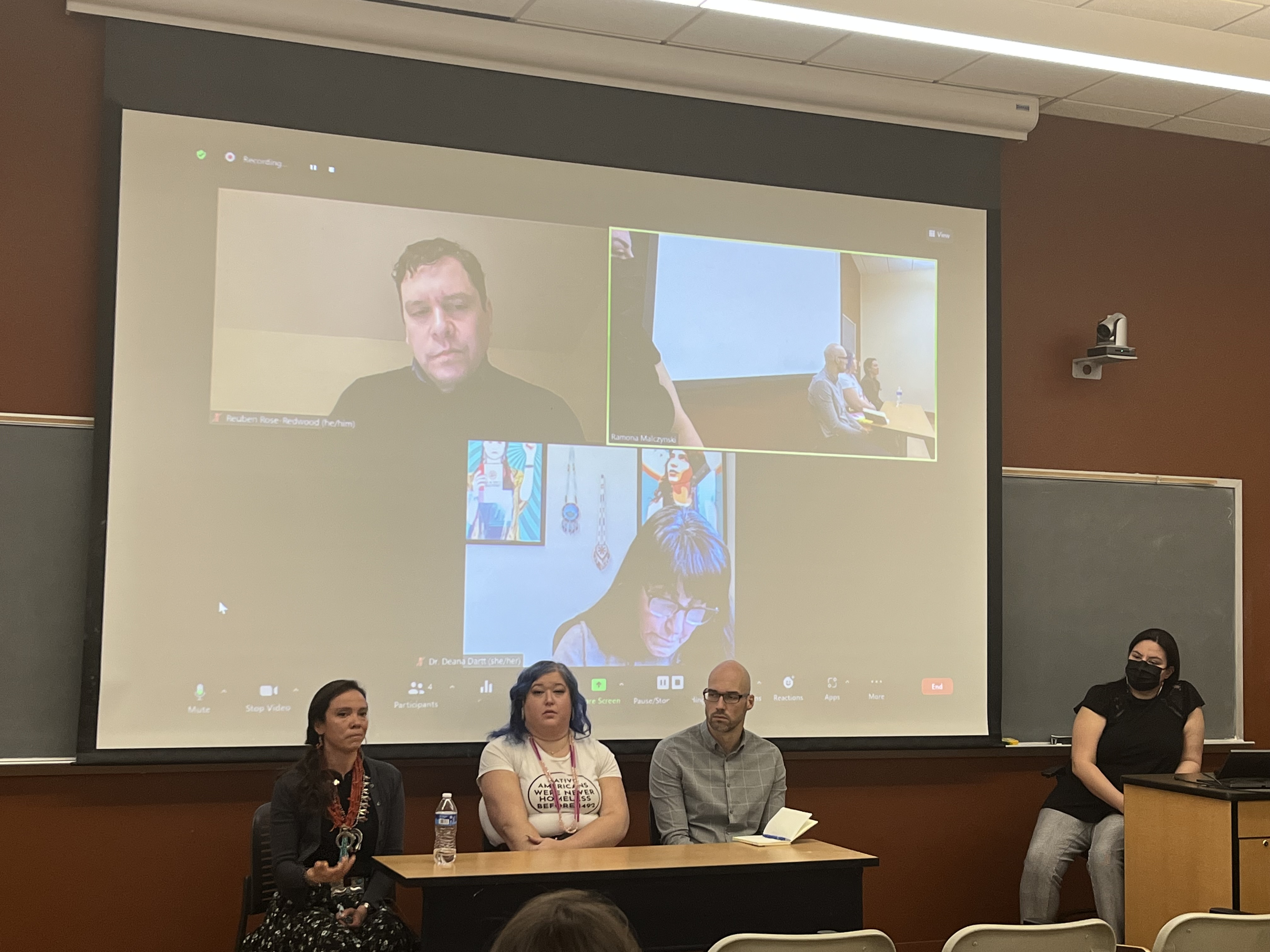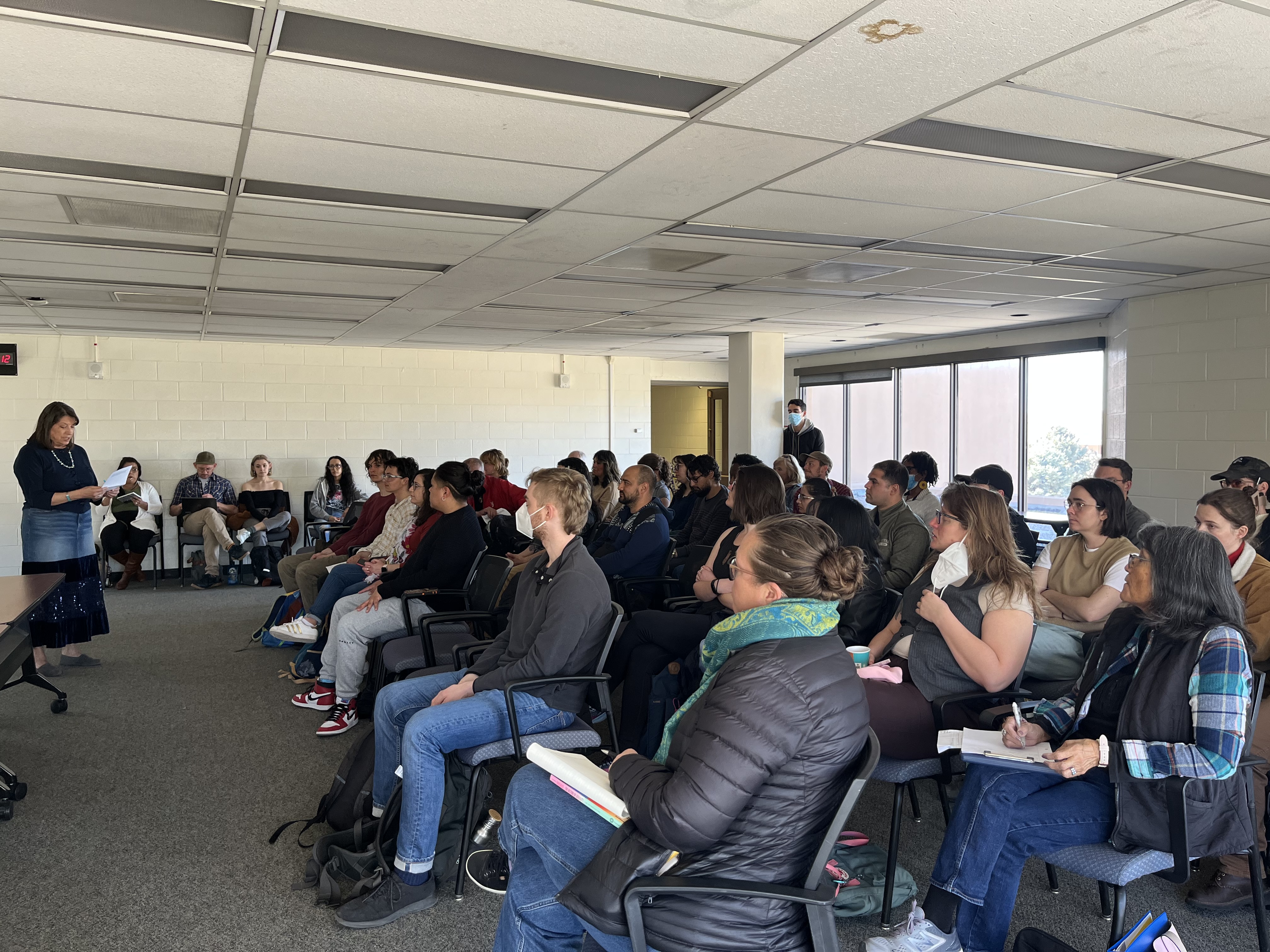Indigenous Cartographies @ UNM was a huge success!
 Indigenous cartographers and communities have been at the forefront of recent innovations in critical cartography. We created the public panel event on February 27th so that UNM students, faculty, and partners could learn and take inspiration from thinkers and practitioners working in this exciting domain. Panelists discussed projects and ideas relevant to research and teaching across campus, and especially for community engagement. The public panel drew dozens of attendees from different departments across campus as well as many community members from off campus.
Indigenous cartographers and communities have been at the forefront of recent innovations in critical cartography. We created the public panel event on February 27th so that UNM students, faculty, and partners could learn and take inspiration from thinkers and practitioners working in this exciting domain. Panelists discussed projects and ideas relevant to research and teaching across campus, and especially for community engagement. The public panel drew dozens of attendees from different departments across campus as well as many community members from off campus.
In addition, our panelists joined the Spring 2023 Critical Cartography course taught by our Center Director, Dr. Maria Lane, so they could be in conversation with students engaging with critical cartography. This open classroom drew in dozens of community members from outside of the course as well.
The Center for Community Geography would like to thank our amazing Indigenous Cartographies @ UNM presenters: Christine Ami, Deana Dartt, Rudo Kemper, Annita Lucchesi, and Reuben Rose-Redwood. We learned so much from each of you and have already received many comments from attendees who found the panel and open classroom transformative and inspiring. Also, thank you to our opening speakers, moderators, campus sponsors and the Center staff for helping make these events ones to remember.
We believe that bringing together our five panelists from diverse professional backgrounds and mapping approaches made our public panel and open classroom events especially unique and enriching. We would like to briefly illustrate some key takeaways from our public panel event and demonstrate the variety of approaches of our panelists.
Rudo Kemper, a geographer and technologist who co-creates maps with Indigenous communities, stated, “For Indigenous communities, maps will always be imperfect in fully reflecting their worldview/cosmovision; and yet, countermapping remains important because maps can ‘roar’ – they are powerful”.
Deana Dartt explained her work on the Indigenous Coastal Narrative Project which is “working to try to find solutions for the enormous problem of misrepresentation and lack of representation of [her] Native community in California (Coastal Band Chumash)”.
Reuben Rose-Redwood, a Professor of Geography at the University of British Columbia who works on the cultural politics of place naming with Indigenous communities ended his presentation saying, “Engaging in such acts of worldmaking to decolonize and Indigenize place mappings and storyscapes are important ways to demonstrate through concrete action that the colonial map is not the territory, but the Indigenous territory is a mapping that can guide us towards a more decolonial future”.
Christine Ami poignantly explained while discussing her return to her ancestral homelands, “When we take a look at cartography, through maps, we have to keep in mind just because you have the information doesn’t mean that everybody else does. You have to be really conscious of what you put down in publishing, why you put it down, and most importantly, for whom you’re doing it.”
Annita Lucchesi ended our public panel on a powerful note stating, “It’s not about placing ourselves within a Western canon or about validating the things that our ancestors created, or that our people are currently creating, as just as valid as colonial ways of thinking or colonial ways of mapping. We don’t need to measure up to them, we don’t need to measure to them at all…We stand on our own two feet. We are our own people with our own system of relations that doesn’t need to be compared to anything else.”

We hope you learn more about the work of these cartographers and you can watch a recording of the February 27th, 2023 public panel on our YouTube channel here: https://www.youtube.com/watch?v=Lm91G2PPLyw.

